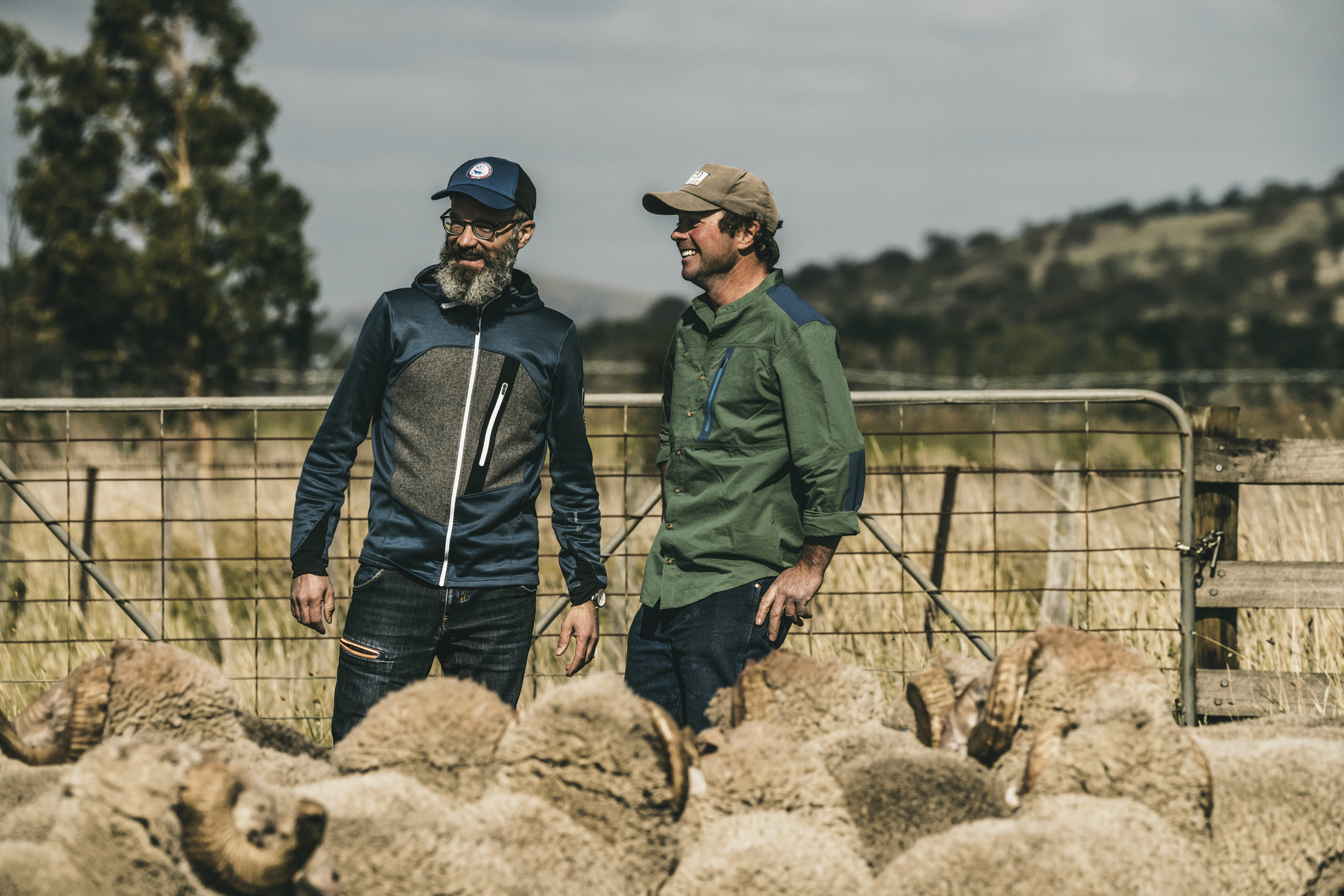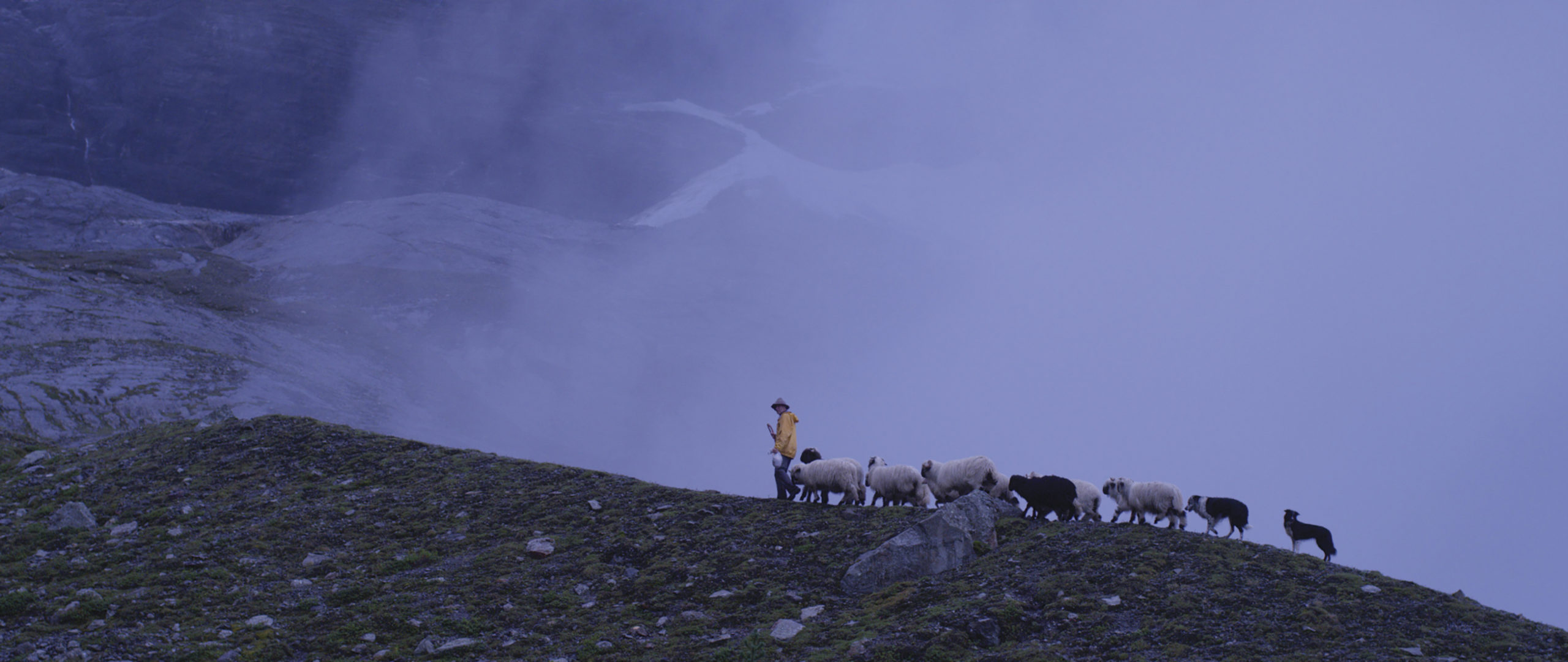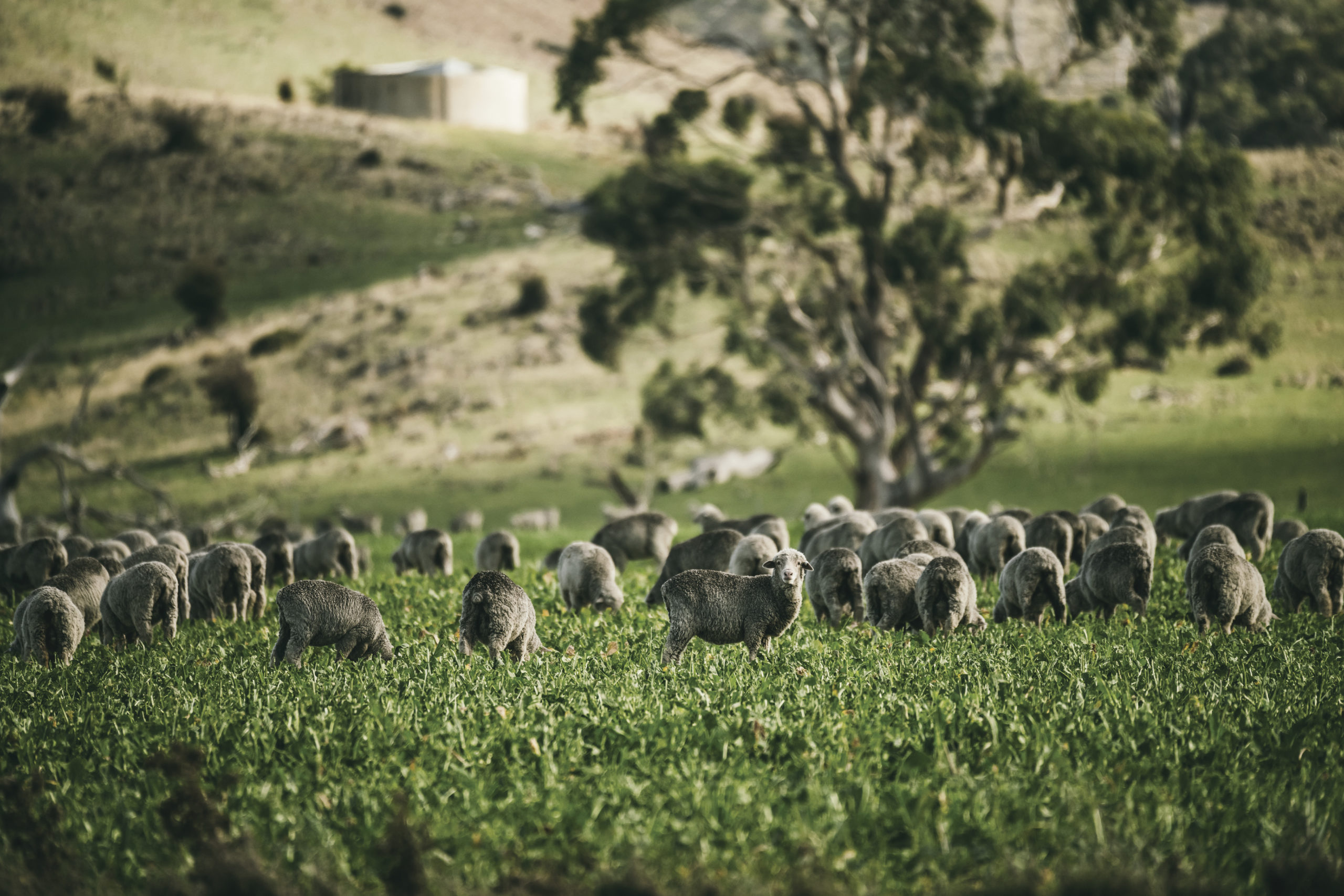Interview by Denis Piccolo
Photos by Sebastian Gabriel & Alastair Bett

Interview by Denis Piccolo
Photos by Sebastian Gabriel & Alastair Bett
Ortovox has always had safety as a central and fundamental aspect of its corporate mission.

This term does not refer only to the protection offered through the brand’s products, but also the protection of people, of the environment and of the animal world. Sustainability can and must be declined also through a careful control of the Tasmanian farms producing wool or in the mountains, a task destined to last over time and to be pursued with conviction and dedication.
The commitment to fair trade wool is an aspect that distinguishes Ortovox since 1988. The protection of people and animals led the brand, after more than two years of talks with wool farmers, suppliers and producers, to initiate its own wool standard, the Ortovox Wool Promise (OWP).
This standard focuses upon animal welfare, farm and land management, and slaughter and transport. More than 60 indicators are checked regularly on the farms by a certified, independent auditor. In addition, Ortovox once a year also brings together the various parties from along the wool supply chain and provides a platform for critical discussion, transparency and new solutions.

The Ortovox Wool Promise, in particular, is divided into 4 fundamental points:
1. No to museling. A procedure that involves the removal of strips of wool-bearing skin from around the breech of a sheep to prevent flystrike. Mulesing causes to animals unnecessary pain and stress. In Europe it is forbidden, while in Australia and New Zealand, from which almost 90% of the world’s wool comes from, this technique is still implemented. Ortovox, supplying only from 100% mulesing free farms and carrying out a careful control on its farms, puts animal welfare first, and for the OWP it has defined 64 more points which guarantee that their sheep really thrive.
2. Protecting nature. Wool is a natural fiber and therefore a holistic product. It is a part of the natural cycle that’s why it is fundamental that farmers practice a sustainable agriculture in order to provide the ideal conditions for both humans and animals, today and for generations to come.
3. Personal relationships with farmers and collaborators with which Ortovox has entered into multi-year contracts and where it regularly visits on site. In fact, since 2010 the brand has obtained Merino wool for mountainwear from six 60,000 sheep from six farms selected in Tasmania, all places that meet the high quality requirements and follow the broad and detailed guidelines of the Ortovox Wool Promise wool standard. The relationship with breeders is based on friendship and mutual trust, a close and friendly collaboration that becomes the source of new strengths that can really make a difference.
4. Transparency all the way to the source for dealers and clients. It is in fact possible to trace the development of Ortovox products up to their origin, from the Tasmania sheep farms. Transparency and monitoring of the complex delivery chain represent a great challenge, but at the same time also a question that is very close to the brand and for this reason it becomes of fundamental importance to know the people who are at the beginning of it all: farmers and producers of the clean wool.
Share this Feature